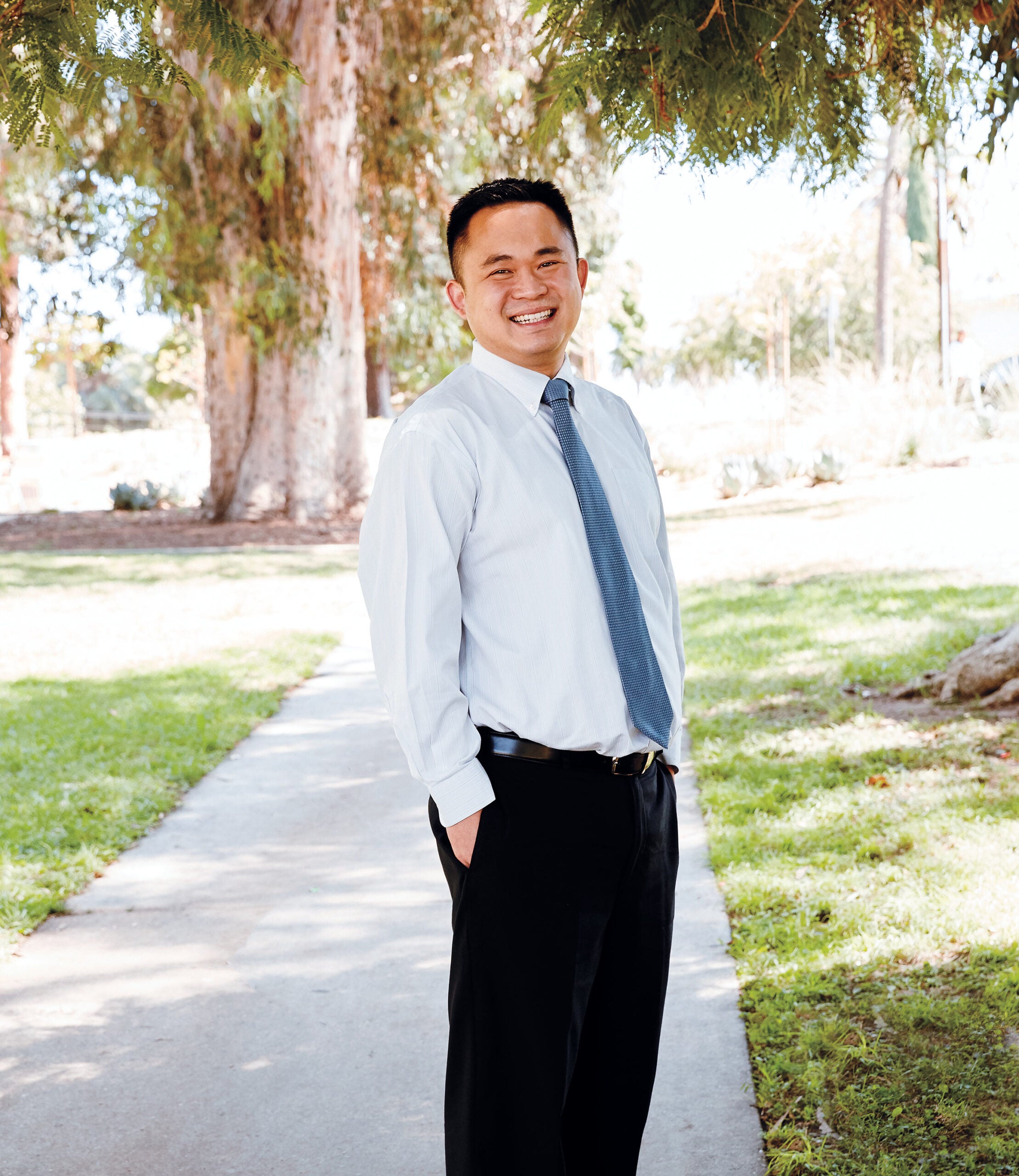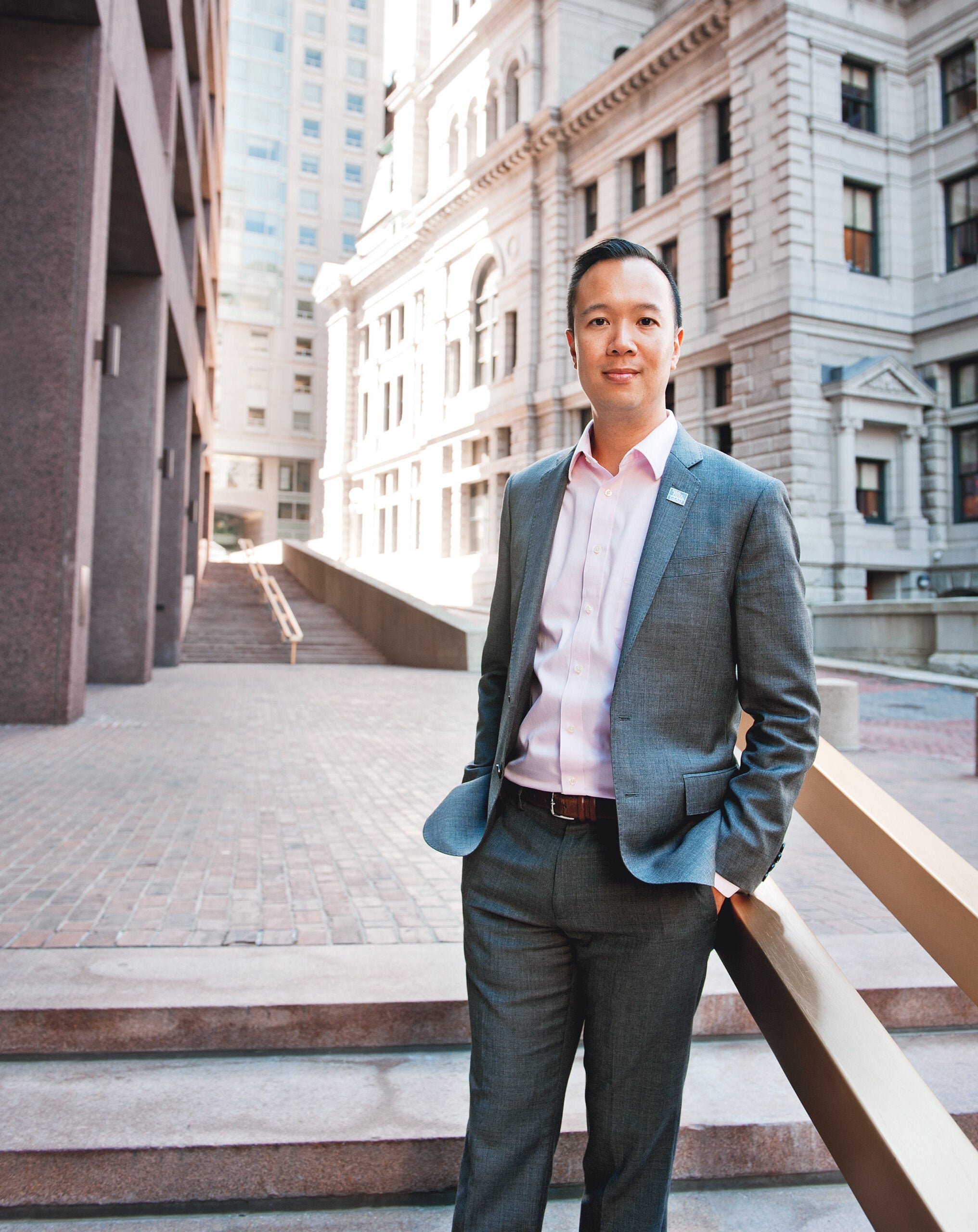In the wake of the Supreme Court’s decision in June in Obergefell v. Hodges holding that states cannot deny persons the constitutional right to same-sex marriage, the LGBT activist community is tackling the questions of what the movement will look like after the blockbuster win and how to engage the public with causes that have received comparatively scant attention.
An Omnibus LGBT Rights Bill
Within days of Obergefell, proponents of LGBT rights were chiming in with a common refrain, a warning not to rest easy. As Peter Renn ’06, a staff attorney at Lambda Legal, puts it: “You can get married on Monday, fired from your job on Tuesday, evicted from your house on Wednesday, and thrown out of a business on Thursday, all because of who you are.”

Not all agree with that description. Chai Feldblum ’85, a commissioner of the Equal Employment Opportunity Commission, disagrees with the part about being fired. Since April 2012, the EEOC has worked to include transgender, gay, and bisexual employees under its interpretation of Title VII’s ban on public and private employers’ ability to discriminate “on the basis of sex.” For decades, courts have interpreted Title VII to prohibit discrimination against employees who do not conform to gender stereotypes. According to the EEOC, LGBT individuals should also be able to seek recourse under Title VII, under the theory that such discrimination is based on employees’ alleged failure to present their gender, or choose their partners, in the way employers expect based on their born sex. Feldblum fears that if people hear that the law does not protect them, they will think there is nothing they can do. Instead, she prefers to say, “You can get married in the morning and fired in the afternoon. But if you get fired, thank goodness the EEOC has opened its doors to taking your charge.”

“You can get married on Monday, fired from your job on Tuesday, evicted from your house on Wednesday, and thrown out of a business on Thursday, all because of who you are.”
Peter Renn ’06
Though Renn and Feldblum may differ in the framing, they agree wholeheartedly on the goal: Congress needs to pass an omnibus bill in the mold of the Civil Rights Act of 1964, which widely outlawed discrimination on the basis of race, color, religion, sex or national origin. In the 1990s, Feldblum had worked with legislators on drafting such a bill. Then, in 1994, the military instituted Don’t Ask, Don’t Tell, a policy allowing LGB citizens to serve in the military, but forcing them to remain in the closet. “When you lose that badly on Capitol Hill, you really lose momentum,” Feldblum recalls. The bill was scaled back to cover only employment, and the result, the Employment Non-Discrimination Act, has been introduced in almost every Congress since 1994 and has failed to pass each time
In the meantime, regulators and litigators have tried using existing legislation such as Title VII to protect LGBT workers. But while the EEOC, as an agency, has significant discretion to do so, courts have been less consistently willing to extend existing protections. For this reason and others, many agree that a sweeping bill explicitly offering protections on the basis of sexual orientation and gender identity is necessary.
Trans Rights
Since the moment Caitlyn Jenner became a transgender icon, it’s as if the country has suddenly awoken to a conversation about trans rights it didn’t realize had been missing. When Alex Chen ’15, who wrote an article for the Harvard Law Review about how federal agencies have begun accommodating trans individuals, applied to law schools, he said, “it looked like there had been glacial movement. The fact that things have moved so fast in the past five years has caught me totally off guard.”
A few of the most important changes involve routine paperwork. Commonplace tasks, from going to the doctor to applying for a job to doing business at the DMV or requesting Social Security benefits, can present herculean obstacles for a trans person, whose identifying legal documents and gender identity often don’t match. As of just a few years ago, to change a person’s sex designation on official documents, most federal agencies no longer require evidence of sexual reassignment surgery—which is rarely covered by health insurance and not always recommended for or desired by individuals who are transitioning.
Obstacles remain, such as the requirement of a doctor’s note, which several countries have eschewed in favor of a simple declaration from an individual of his or her gender identity. And trans rights can seem particularly subject to the political climate, says Chen, who pointed to a decision by a Virginia-based federal judge in July refusing to apply Title IX protections— which prohibit sex discrimination in schools—to a male-identifying trans student’s request to use male bathrooms. The opinion repeatedly refers to trans identities as a mental illness. “With people like that on the federal bench and a possibly less favorable administration,” Chen says, “we could see a period of retrenchment.”
Connections to Poverty, Issues in Schools
All else being equal, LGB people, particularly women, are more likely to be poor and to not have adequate daily food than heterosexuals. The statistics concerning trans people are even grimmer: They are four times more likely than the general population to live in poverty, twice as likely to be unemployed, and nearly twice as likely to be homeless. Inevitably, LGBT rights are intertwined with other social justice concerns about poverty and discrimination. “A right not to be fired from your job doesn’t mean all that much if you can’t get a job,” says Douglas NeJaime ’03, a professor at UCLA School of Law and faculty director of its Williams Institute, a national think tank on sexual orientation and gender identity law and public policy.

According to Janson Wu ’03, executive director at Gay and Lesbian Advocates and Defenders, the end goal of the LGBT movement is “to create a world where our community isn’t treated as untouchable or unspeakable in certain contexts.” That begins with schools, he says. It means adopting curricula that are LGBT-inclusive, refusing to turn a blind eye to bullying in schools, and accommodating trans students in bathrooms, in locker rooms, and on overnight field trips, for starters.
Religious Accommodation
Religious accommodation and the balancing of First Amendment rights with principles of nondiscrimination pose two of the greatest challenges for the LGBT community. In late March, Indiana gained attention when it passed its own version of the federal Religious Freedom Restoration Act, aimed at allowing individuals and companies to obtain religious exemptions from laws of general applicability. Indiana’s law sparked a nationwide debate about whether wedding photographers, caterers and others should be required to serve LGBT customers if doing so interferes with their religious beliefs.
According to Wu, the country can pick one of two paths. First, people could see LGBT discrimination as exactly the same as all other forms of prohibited discrimination. “The second and more dangerous path sees LGBT discrimination as different—as acceptable in certain situations,” he says. “That path forgets the long history of religiously based discrimination against other groups, like different races and women.”
While Wu recognizes the need for balance and the important religious liberty protections ingrained in the Constitution, he warns against adopting the framework that “the mere existence of a gay person in the workplace or in your business substantially burdens your religious exercise.” He cites a GLAD case in which a food services manager at a Catholic high school cafeteria had his job offer rescinded after he listed his husband as an emergency contact on employment forms. In that case, Wu says, the man’s job had nothing to do with religion and he would have had almost no interaction with students.
***
It is rare for a conversation about LGBT rights not to touch on how swiftly the movement has galvanized the public. Renn, in fact, fears that the LGBT movement could fall victim to its own success—that people will believe the fiction that “because we’ve won marriage, the fight is over and people can pick up their tents and go home.” From this side of history, it may well seem that way, says NeJaime. “Yes, there’s something dramatic about the rate of support that the marriage equality cause achieved in a relatively short time, but it’s also been a very long battle that a lot of people have fought for a long time.”
Months after Obergefell, attorneys and advocates for whom same-sex marriage was a job description look back on the day and declare, unequivocally, that it was a civil rights victory in the vein of Brown v. Board of Education, which desegregated schools, or Loving v. Virginia, which barred anti-miscegenation statutes. But such comparisons can be worryingly revealing, particularly of the limits of law. Brown was decided in 1954, yet de facto segregation persists in many schools to this day. Standing alone, without vigorous social movements that reinforce and act in accordance with the legal changes, judicial opinions can fail to create the long-lasting effects envisioned by their authors. “Legal victories are great,” says Wu. “But they’re just words on paper unless they make a real difference in people’s lives.”
